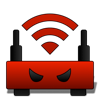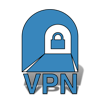
THE ADVENTURES OF BILLY
Comprehensible Information Security…



Wi-Fi hotspot are a useful way of accessing the internet with wireless devices and can be found in homes, workplaces, and public areas. However not all Wi-Fi networks are secure, and there are ways they can be used by attackers to get hold of your data.

Cybercriminals can set up their own public Wi-Fi network to try and get victims to connect. After connecting their laptop to the internet, they then create a hotspot calling it something like 'free_wifi'. Once the victim connects they are effectively connected to the attacker's computer and all the data you send and receive can be captured.

Sniffing is a way by which attackers capture a victim's data as it is sent over a Wi-Fi network. This can allow them to steal login details and sensitive information to then be used to commit offences against them. Every time you open an app on your phone login details are sent across the network and can be intercepted.

Rogue access points and their clients undermine the security of an enterprise network by potentially allowing unchallenged access to the network by any wireless user or client in the physical vicinity. Rogue access points can also interfere with the operation of an enterprise network. Rogue access points can do the following damage:

When using public Wi-Fi, it is good practice to restrict browsing to websites that do not require login credentials, and not to use the network for accessing sensitive data. 3G mobile connections, for instance, can be typically considered much safer than public Wi-Fi.

Reasons to suspect a WiFi access point:

If you have no other choice but to use a unsecured network then be sure to use a Virtual Private Network (VPN)
Running a VPN ensures that any data is sent through an encrypted tunnel that cannot be easily snooped upon by malicious parties.
